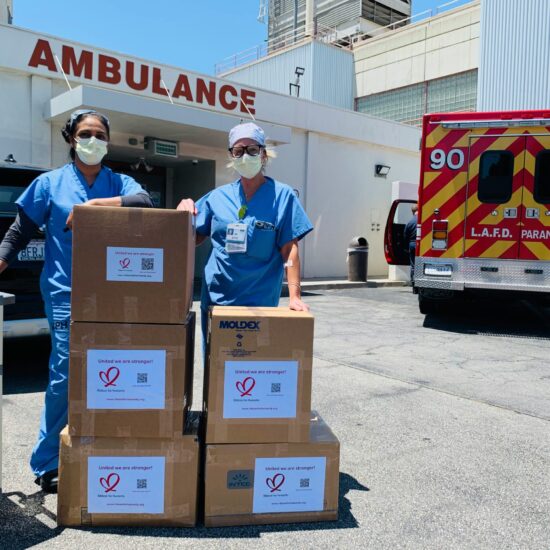
Senior Fellow, May May Leung, PhD, RD, is an assistant professor at the CUNY School of Public Health at Hunter College. Her research expertise includes the development and evaluation of innovative health communication and community-based interventions to prevent childhood obesity.
As you probably have heard by now, in May the mayor of New York City proposed a policy that would prohibit the selling of most sugary drinks larger than 16 ounces in certain foodservice establishments. These establishments include delis, restaurants and even sports arenas and movie theaters. The ban wouldn’t extend to grocery stores, convenience stores or vending machines, but carts on sidewalks and in Central Park would also be affected.
There is plenty of evidence that shows the consumption of sugary drinks and larger portion sizes are associated with the obesity epidemic. However, there’s been much debate as to whether such a policy would actually be an effective way to address this epidemic, which affects over half of New Yorkers.
New York University researchers say that the policy could result in decreased consumption of calories, specifically from sugary drinks in fast food restaurants. They combined data from different studies across multiple cities, including NYC, and concluded that if people purchased the recommended 16 oz. size as opposed to larger sizes, this would result in a decrease of approximately 70 calories per customer. Over the course of a year, the number of calories could certainly add up and may have the positive effect that the Mayor is hoping for.
On the other hand, Brian Wansink and David Just of Cornell University believe that the ban will not translate into the real world. People like to have options and want to buy the size of soft drinks that they want. Wansink’s and Just’s research show that when people are provided larger portions, they do drink/consume significantly more, however, this doesn’t necessarily imply that the ban will be effective. In fact, if people are denied the portion size they want or forced to eat healthy, this could lead to some form of rebellion, such as splurging on snacks and desserts at a later meal, and result in additional consumption of calories.
No doubt this epidemic needs urgent attention and the proposed ban is certainly a step in the right direction. However, a recent poll by The New York Times showed that 6 in 10 residents think the ban is a bad idea. With so many New Yorkers expressing discontent, we may also want to consider incorporating initiatives to encourage and promote healthier eating, in addition to the ban.
The only public hearing on the proposed policy was held in late July. The decision, which will be determined by the Board of Health, should happen in a few weeks so stay posted for the outcome. If approved, you may see changes as early as March 2013.

Source: Andrew Burton, Reuters








Barbara Glickstein / September 4, 2012
The amount of local and some national coverage of this proposed ban has contributed to the conversation about the amount of calories (mostly from sugar) these large drinks contribute to the diet. Too bad we can’t measure the impact of that dialogue on individual habits. Often folks grab for the larger more economic size and refill option. Perhaps this caloric information has made them pause before doing so next time. I for one support the ban.
/
Eve Birnbaum / September 4, 2012
I support the ban and agree with Barbara – the whole controversy has certainly raised awareness about the high caloric and sugar content of soda. Now let’s add apple and orange juice to the conversation!
/